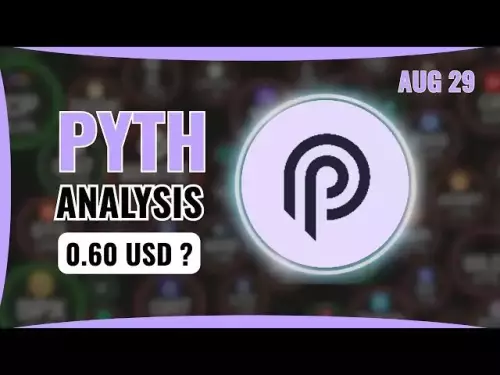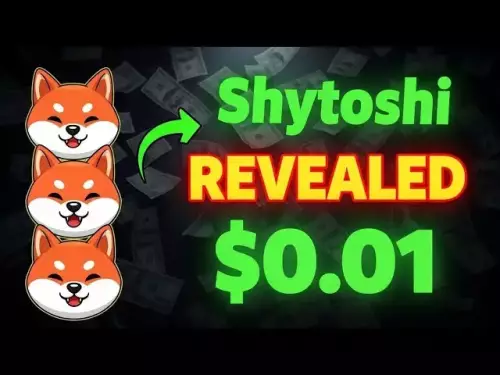-
 Bitcoin
Bitcoin $109300
-3.13% -
 Ethereum
Ethereum $4325
-5.34% -
 XRP
XRP $2.853
-5.03% -
 Tether USDt
Tether USDt $1.000
0.01% -
 BNB
BNB $858.7
-1.94% -
 Solana
Solana $209.6
-1.77% -
 USDC
USDC $0.9998
-0.02% -
 Dogecoin
Dogecoin $0.2152
-3.63% -
 TRON
TRON $0.3369
-2.86% -
 Cardano
Cardano $0.8291
-4.35% -
 Chainlink
Chainlink $23.38
-7.08% -
 Hyperliquid
Hyperliquid $44.83
-7.42% -
 Ethena USDe
Ethena USDe $1.001
-0.01% -
 Sui
Sui $3.323
-4.78% -
 Stellar
Stellar $0.3606
-6.12% -
 Bitcoin Cash
Bitcoin Cash $533.2
-3.75% -
 Avalanche
Avalanche $23.80
-3.23% -
 Cronos
Cronos $0.2944
-13.91% -
 Hedera
Hedera $0.2277
-4.49% -
 UNUS SED LEO
UNUS SED LEO $9.447
-1.13% -
 Litecoin
Litecoin $110.1
-2.96% -
 Toncoin
Toncoin $3.061
-3.75% -
 Shiba Inu
Shiba Inu $0.00001219
-3.24% -
 Polkadot
Polkadot $3.817
-3.50% -
 Uniswap
Uniswap $9.573
-3.87% -
 Dai
Dai $0.0000
0.00% -
 Bitget Token
Bitget Token $4.554
-0.97% -
 Monero
Monero $263.3
-2.75% -
 Aave
Aave $310.0
-1.98% -
 Ethena
Ethena $0.6484
-2.10%
What are the fees for NFT trading on Gemini?
Gemini charges a 3.49% fee on NFT sales, no listing fees, and offers transparent pricing with enhanced security and KYC checks for creators and buyers.
Aug 29, 2025 at 03:28 pm
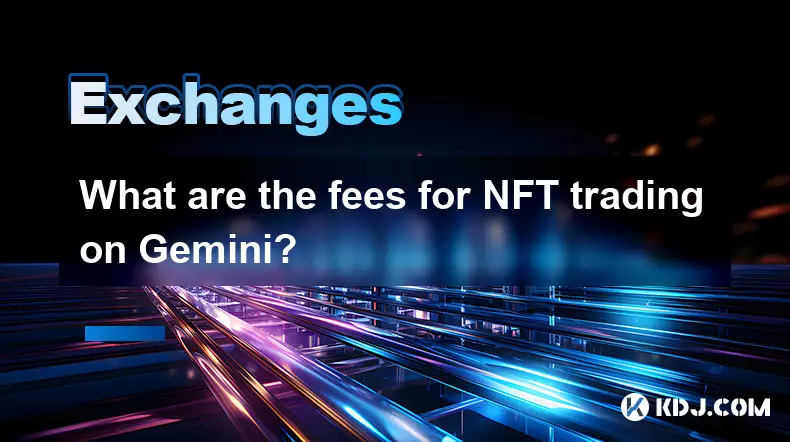
Fees for NFT Trading on Gemini
1. Gemini charges a flat service fee of 3.49% on every NFT sale made through its marketplace. This fee is applied to the final sale price and is deducted directly from the seller’s proceeds. The fee covers the operational costs associated with hosting the marketplace, verifying digital assets, and ensuring secure transactions.
2. Buyers are not charged an additional platform fee when purchasing NFTs. However, they are responsible for standard network gas fees if the transaction occurs on a blockchain that requires them, such as Ethereum. These fees fluctuate based on network congestion and are paid to miners or validators, not to Gemini.
3. Sellers receive their funds in cryptocurrency, typically in the same token used for the sale (e.g., ETH or WETH). Gemini does not charge extra for transferring these funds to a user’s wallet, but external wallet providers or networks may impose their own withdrawal fees.
4. There are no listing fees on Gemini’s NFT marketplace. Users can mint and list their digital collectibles at no upfront cost. This encourages creators to showcase their work without financial risk, while the platform monetizes only upon successful transactions.
5. The 3.49% fee is competitive compared to other major NFT platforms, many of which charge between 2.5% and 5%. Gemini’s rate includes support for fraud detection, copyright verification, and customer service, which adds value beyond simple transaction processing.
Payment and Settlement Process
1. After an NFT is sold, the buyer’s payment is held temporarily while the transaction is confirmed on the blockchain. This process usually takes a few minutes, depending on network speed.
2. Once confirmed, Gemini calculates the 3.49% service fee and credits the remaining amount to the seller’s Gemini account balance. The seller can then choose to withdraw the funds to an external wallet or use them for other trades on the platform.
3. Withdrawal times vary based on blockchain activity and security checks. Most withdrawals are processed within 24 hours, but high-traffic periods may cause delays.
4. All transactions are recorded on the blockchain and visible in the user’s transaction history. Gemini also provides detailed receipts that include the sale price, fee deduction, and net payout.
5. Sellers should verify their wallet addresses before initiating withdrawals to prevent irreversible loss of funds.
Fee Structure Comparison with Other Platforms
1. OpenSea, one of the largest NFT marketplaces, charges a 2.5% platform fee plus a 0.5% NFT trading fee, totaling 3%. While slightly lower than Gemini, OpenSea does not offer the same level of identity verification or curated collections.
2. Rarible applies a 2.5% fee on both buyer and seller sides in some cases, depending on the version and blockchain used. This dual-fee model can result in higher overall costs compared to Gemini’s single-side charge.
3. Magic Eden, primarily focused on Solana-based NFTs, charges a 2% fee, making it more affordable for users on that network. However, it lacks the regulatory compliance and custodial security features that Gemini provides.
4. Gemini’s fee includes enhanced security measures, such as KYC checks for creators and buyers, which reduces the risk of fraud and counterfeit listings.
5. Some platforms advertise “zero fees” but generate revenue through tips or hidden charges during checkout. Gemini maintains transparency by applying a consistent rate across all transactions.
Tax Implications and Reporting
1. Every NFT sale on Gemini is a taxable event in many jurisdictions, including the United States. Capital gains tax may apply based on the difference between the purchase price and the sale price.
2. Gemini does not automatically report NFT transactions to tax authorities, but users are responsible for maintaining accurate records. The platform provides downloadable transaction histories to assist with tax preparation.
3. The 3.49% fee is not tax-deductible as a business expense unless the seller is operating as a licensed dealer or creator conducting regular NFT sales as part of a trade or business.
4. Failure to report NFT income can result in penalties, interest, or audits by tax agencies.
5. Users should consult a tax professional familiar with digital asset regulations to ensure compliance with local laws.
Common Questions
Does Gemini charge fees for failed NFT transactions? No, Gemini does not charge its 3.49% service fee if an NFT sale does not go through. However, buyers may still incur gas fees if the transaction was broadcast to the blockchain but failed due to network issues or insufficient funds.
Can creators set their own royalty fees on Gemini? Yes, creators can specify a royalty percentage when minting an NFT. This royalty is paid to the original creator on every subsequent resale, separate from Gemini’s 3.49% platform fee.
Are there any hidden costs when trading NFTs on Gemini? No, Gemini discloses all fees upfront. The only costs are the 3.49% service fee on sales and applicable blockchain network fees. There are no subscription charges, listing fees, or withdrawal surcharges imposed by the platform.
Do fees differ based on the type of NFT? No, the 3.49% fee applies uniformly across all NFT categories, whether art, collectibles, or virtual real estate. The pricing structure does not vary by rarity, creator status, or file type.
Disclaimer:info@kdj.com
The information provided is not trading advice. kdj.com does not assume any responsibility for any investments made based on the information provided in this article. Cryptocurrencies are highly volatile and it is highly recommended that you invest with caution after thorough research!
If you believe that the content used on this website infringes your copyright, please contact us immediately (info@kdj.com) and we will delete it promptly.
- Bitcoin, Digital Health, Crypto Convergence: A New Era of Economic Resilience
- 2025-08-29 21:05:17
- BlockchainFX & Meme Coins: What's the Deal in 2025?
- 2025-08-29 19:05:12
- XRP Price Primed for Massive Rally? Raoul Pal Weighs In
- 2025-08-29 17:25:13
- Bitcoin's Future Value & Web Companies: A Perfect Storm?
- 2025-08-29 18:10:18
- Bitcoin Price Prediction: Institutional Wave Meets Reality Check, Says Research Firm
- 2025-08-29 15:30:16
- US ETFs, Bitcoin, and Spot Trading: A New Era?
- 2025-08-29 15:05:13
Related knowledge
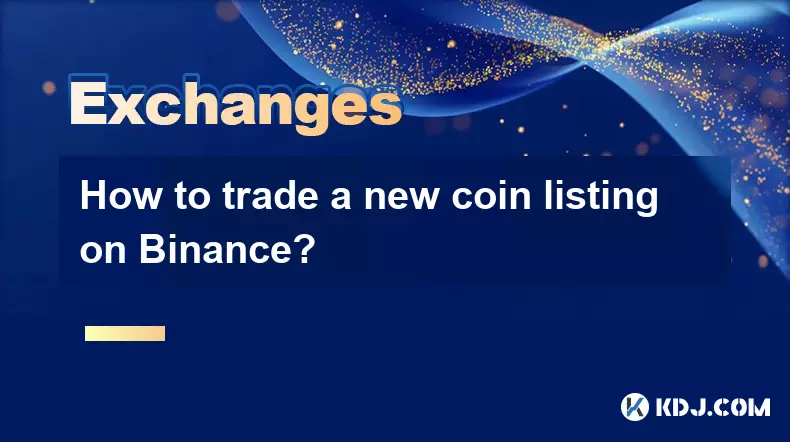
How to trade a new coin listing on Binance?
Aug 29,2025 at 11:14am
Understanding the Pre-Listing Phase1. Research the project thoroughly before any listing announcement. Whitepapers, team backgrounds, and community se...
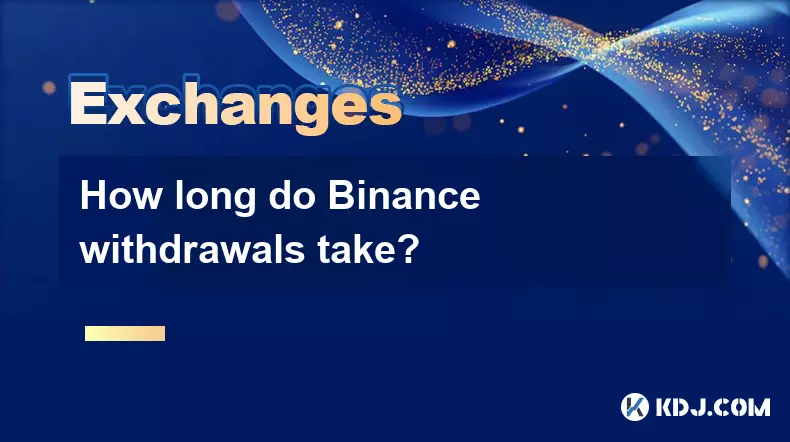
How long do Binance withdrawals take?
Aug 29,2025 at 02:57pm
Understanding Binance Withdrawal Processing Times1. Binance typically processes cryptocurrency withdrawals within a few minutes after the request is c...
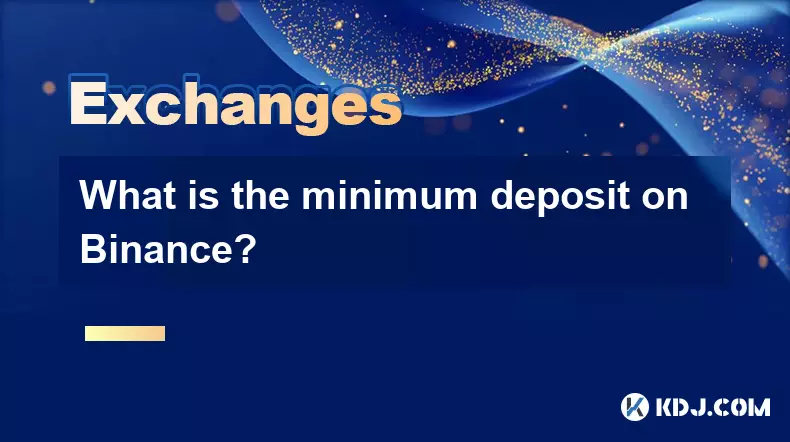
What is the minimum deposit on Binance?
Aug 29,2025 at 01:01pm
Understanding Binance Deposit Requirements1. The minimum deposit on Binance varies depending on the cryptocurrency being deposited. Each digital asset...
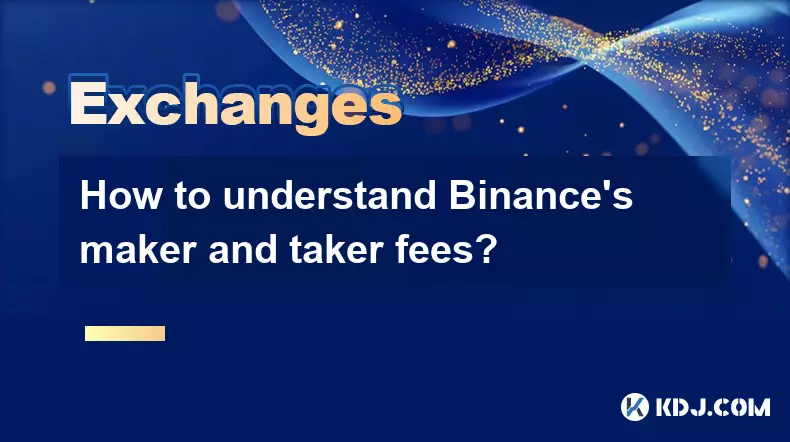
How to understand Binance’s maker and taker fees?
Aug 29,2025 at 02:28pm
Understanding Decentralized Exchanges in the Crypto Ecosystem1. Decentralized exchanges (DEXs) operate without a central authority, allowing users to ...
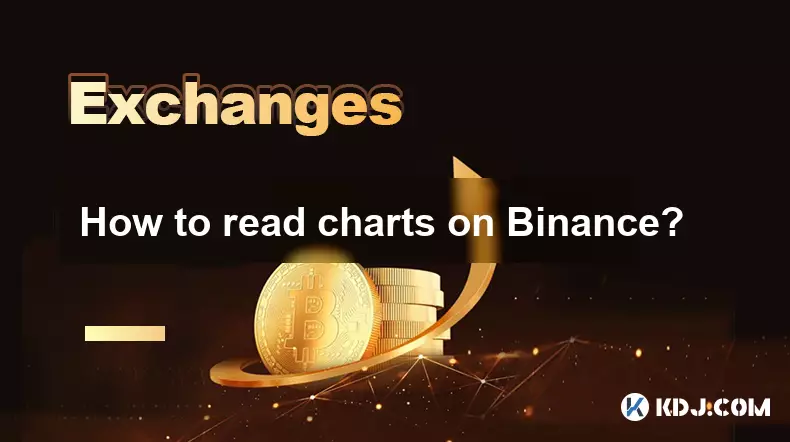
How to read charts on Binance?
Aug 29,2025 at 08:28am
Understanding Candlestick Patterns1. Each candlestick on Binance represents price movement over a specific time interval, such as one minute, five min...
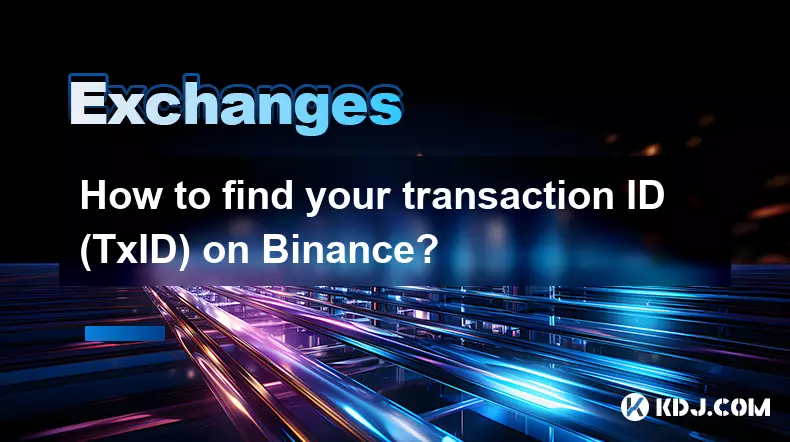
How to find your transaction ID (TxID) on Binance?
Aug 29,2025 at 08:57am
Understanding Transaction ID (TxID) in Binance1. A Transaction ID, commonly known as TxID, is a unique alphanumeric string assigned to every blockchai...

How to trade a new coin listing on Binance?
Aug 29,2025 at 11:14am
Understanding the Pre-Listing Phase1. Research the project thoroughly before any listing announcement. Whitepapers, team backgrounds, and community se...

How long do Binance withdrawals take?
Aug 29,2025 at 02:57pm
Understanding Binance Withdrawal Processing Times1. Binance typically processes cryptocurrency withdrawals within a few minutes after the request is c...

What is the minimum deposit on Binance?
Aug 29,2025 at 01:01pm
Understanding Binance Deposit Requirements1. The minimum deposit on Binance varies depending on the cryptocurrency being deposited. Each digital asset...

How to understand Binance’s maker and taker fees?
Aug 29,2025 at 02:28pm
Understanding Decentralized Exchanges in the Crypto Ecosystem1. Decentralized exchanges (DEXs) operate without a central authority, allowing users to ...

How to read charts on Binance?
Aug 29,2025 at 08:28am
Understanding Candlestick Patterns1. Each candlestick on Binance represents price movement over a specific time interval, such as one minute, five min...

How to find your transaction ID (TxID) on Binance?
Aug 29,2025 at 08:57am
Understanding Transaction ID (TxID) in Binance1. A Transaction ID, commonly known as TxID, is a unique alphanumeric string assigned to every blockchai...
See all articles





















